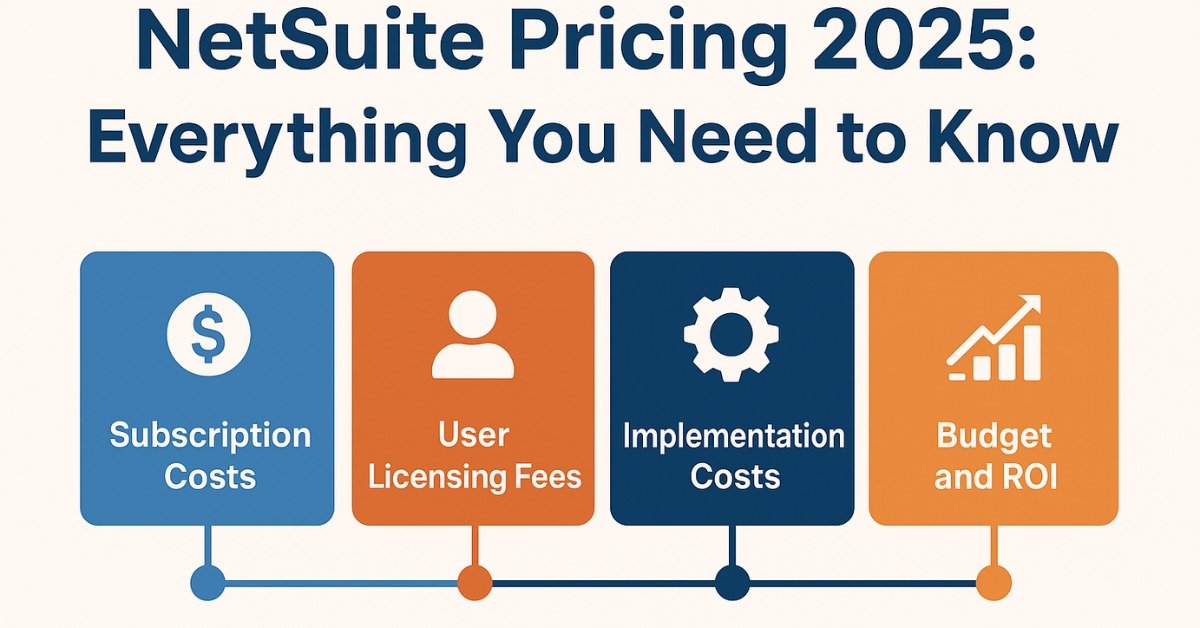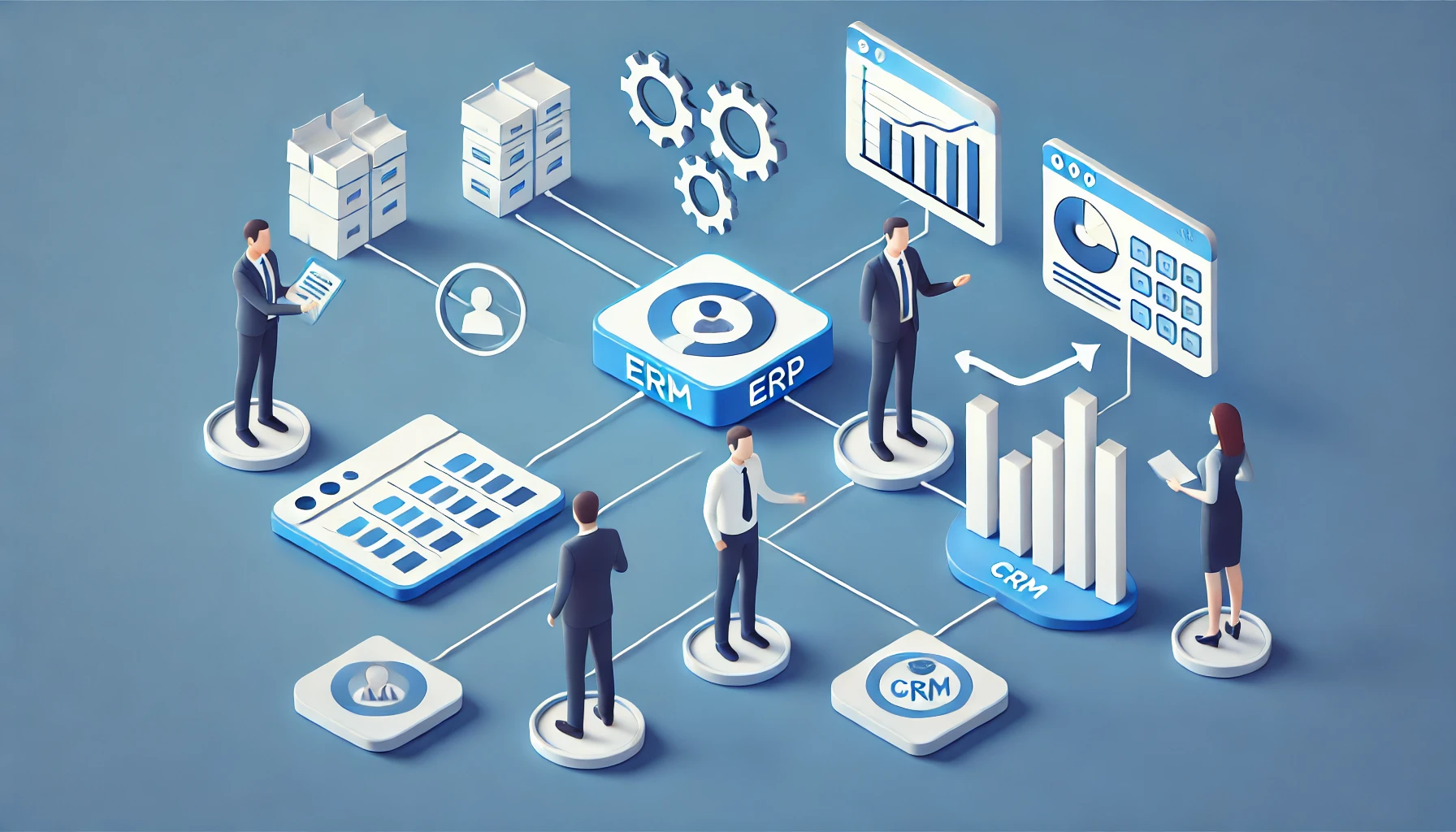Table of Contents
ToggleIs NetSuite Better Than Salesforce? A Comprehensive Comparison
When it comes to business management software, two major names dominate the industry: NetSuite and Salesforce. Both platforms offer powerful features, but they cater to different business needs. While NetSuite is a comprehensive ERP solution, Salesforce is primarily known for its CRM (Customer Relationship Management) capabilities.
If you’re wondering, “Is NetSuite better than Salesforce?”, the answer depends on your business requirements. In this blog, we’ll break down the key differences, strengths, and use cases of both platforms, helping you make an informed decision.
What is NetSuite?
NetSuite is a cloud-based ERP (Enterprise Resource Planning) system that provides businesses with tools for accounting, financial management, inventory control, CRM, and e-commerce. It is designed to help companies manage end-to-end business operations in a single integrated platform.
What is Salesforce?
Salesforce is a cloud-based CRM software that specializes in customer relationship management, sales automation, marketing, and customer service. It helps businesses streamline lead management, sales processes, and customer interactions to improve customer retention and revenue growth.
While NetSuite offers ERP + CRM functionality, Salesforce is CRM-focused. This fundamental difference shapes how each platform serves businesses.

Key Differences Between NetSuite and Salesforce
1. Core Functionality
- NetSuite: Primarily an ERP system with built-in CRM features. It focuses on managing finances, inventory, supply chain, and overall business operations.
- Salesforce: A CRM-first platform with sales and marketing automation. While it offers integrations with third-party ERP systems, it does not have built-in ERP capabilities.
2. Target Audience
- NetSuite: Ideal for mid-sized and large enterprises looking for an all-in-one solution to manage their finances, inventory, and customer relationships.
- Salesforce: Best suited for sales-driven businesses that prioritize customer relationship management and sales automation over other operational functions.
3. CRM Capabilities
- NetSuite: Includes a CRM module, offering features like lead management, customer support, and marketing automation. However, its CRM is not as advanced as Salesforce.
- Salesforce: Industry-leading CRM platform, providing deep insights into customer behavior, predictive analytics, and AI-driven sales automation.
4. ERP and Business Management
- NetSuite: A full-fledged ERP system with capabilities in accounting, procurement, inventory, and financial reporting.
- Salesforce: Lacks built-in ERP features, though it can integrate with third-party ERP solutions.
5. Customization and Flexibility
- NetSuite: Offers extensive customization options to fit different business needs, but it may require technical expertise for advanced modifications.
- Salesforce: Known for its highly customizable CRM, allowing businesses to modify workflows, dashboards, and automation processes easily.
6. Pricing and Cost
- NetSuite: Pricing is subscription-based and depends on business size and requirements. It can be costly for small businesses but is cost-effective for enterprises needing an all-in-one platform.
- Salesforce: Offers tiered pricing, with separate costs for CRM, marketing, and other modules. It may require additional integrations for ERP needs, increasing total expenses.
7. Integration Capabilities
- NetSuite: Provides built-in modules for ERP, CRM, and e-commerce, reducing the need for third-party integrations.
- Salesforce: Requires third-party ERP integrations for full business management but has a vast AppExchange marketplace for extended functionality.
8. Scalability
- NetSuite: Designed for growing businesses that need an all-in-one solution without switching platforms as they expand.
- Salesforce: Scalable in CRM functions but may require additional ERP integrations for businesses needing full operational management.
Which Platform is Better for Your Business?
Choose NetSuite If:
- You need a comprehensive ERP + CRM solution to manage all aspects of your business in one system.
- Your business requires robust financial management and inventory tracking.
- You want to reduce reliance on multiple software platforms by using an integrated system.
Choose Salesforce If:
- Your company is sales-driven and focuses on customer engagement, lead generation, and sales automation.
- You already use a separate ERP system and need a powerful CRM integration.
- You prioritize customization in CRM workflows and AI-driven sales insights.

How NetSuite and Salesforce Work Together
While both platforms serve different primary functions, businesses often integrate NetSuite and Salesforce for a best-of-both-worlds solution. This integration allows:
- Seamless data synchronization between CRM and ERP.
- Accurate financial reporting based on real-time sales data.
- Improved customer experience through combined customer and financial insights.
Several third-party connectors facilitate NetSuite-Salesforce integration, ensuring smooth operations across platforms.
Final Verdict: Is NetSuite Better Than Salesforce?
The answer depends on your business needs:
- If you’re looking for an all-in-one ERP + CRM solution, NetSuite is the better choice.
- If you need a dedicated CRM with extensive sales automation, Salesforce is the way to go.
- For businesses requiring both ERP and advanced CRM, integrating NetSuite with Salesforce might be the most efficient solution.
By evaluating your company’s scalability, budget, and core operations, you can determine the best platform to drive business growth.
For more insights on NetSuite vs Salesforce and other business software solutions, visit Suitepedia, your trusted guide to NetSuite expertise.



